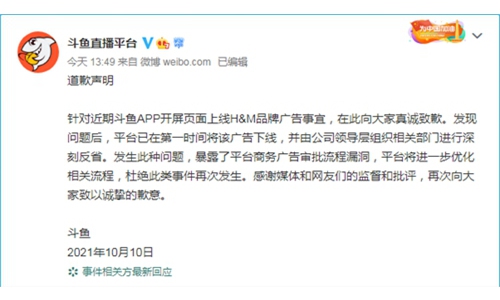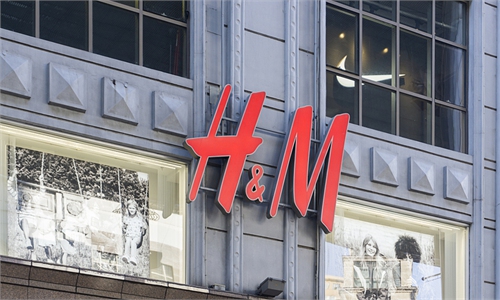Zara parent company shuttering three brands’ digital presence, withdrawing from Chinese market

Inditex Photo: CFP
Apparel brands Bershka, Pull & Bear and Stradivarius, three brands within the Spanish Inditex group which is also the Zara's parent company, posted notices on their official online stores on Chinese e-commerce platform T-mall recently noting that the online stores will close from July 31.
Bershka, Pull & Bear and Stradivarius had announced at the beginning of 2021 that all physical stores in China would be gradually closed within the year, the closure of their online stores confirms their official withdraw from the Chinese market.
According to Inditex's 2021 Review, the sale values of Bershka, Pull & Bear and Stradivarius reached 2.17 billion, 1.88 billion and 1.82 billion euros, accounting 7.8 percent, 6.7 percent and 6.5 percent of overall revenue, respectively.
Inditex's financial report covering the first quarter of 2022 fiscal year showed that the company's revenue reached 6.7 billion euros with net profit reaching 760 million euros, a year-on-year increase of 80 percent.
However, analysts suggested that the increase of profit may due to the surging sale prices. According to UBS research, Zara has lifted its starting prices by 10% or higher from a year ago each month since January, Reuters reported on June 2. H&M, one of Zara's main rivals, also raised its apparels selling price in April with a year-on-year increase of 4.2 percent.
H&M closed its flagship store in Shanghai in late June, its first physical store in Chinese mainland which opened 15 years ago. According to the Wall Street Journal report, H&M currently has 362 stores in China, down from 445 in November 2021 and 505 a year earlier.
A consumer boycott of some Western brands over their opposition to sourcing Xinjiang cotton is just a small reason for their failure in the Chinese market. Analysts noted that the major cause has been a lack of competitiveness and ceding market share to emerging domestic rivals.
Global Times



